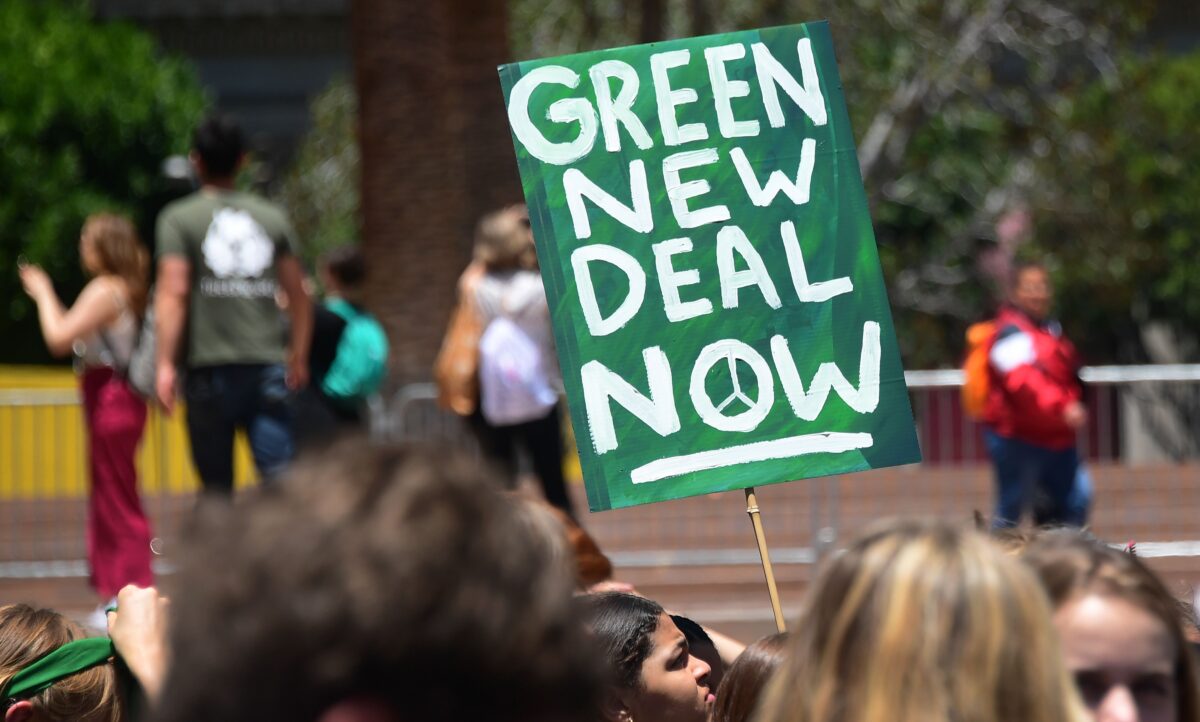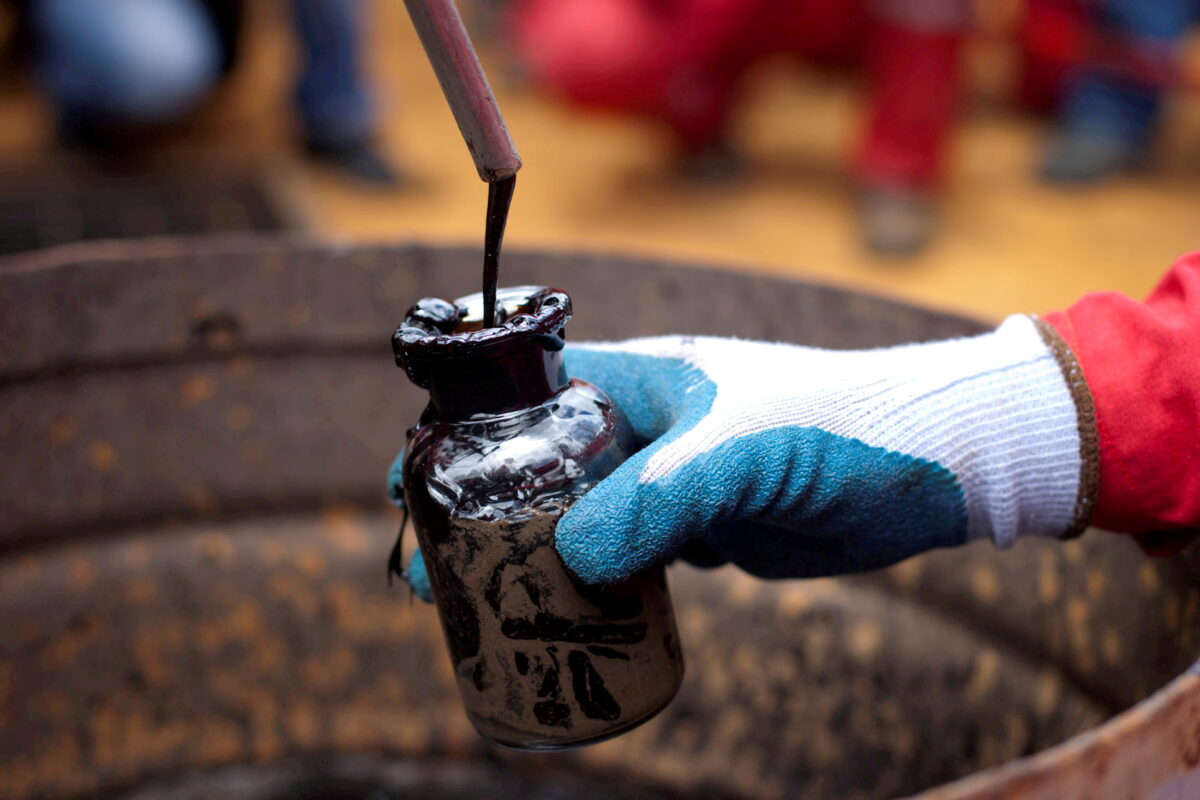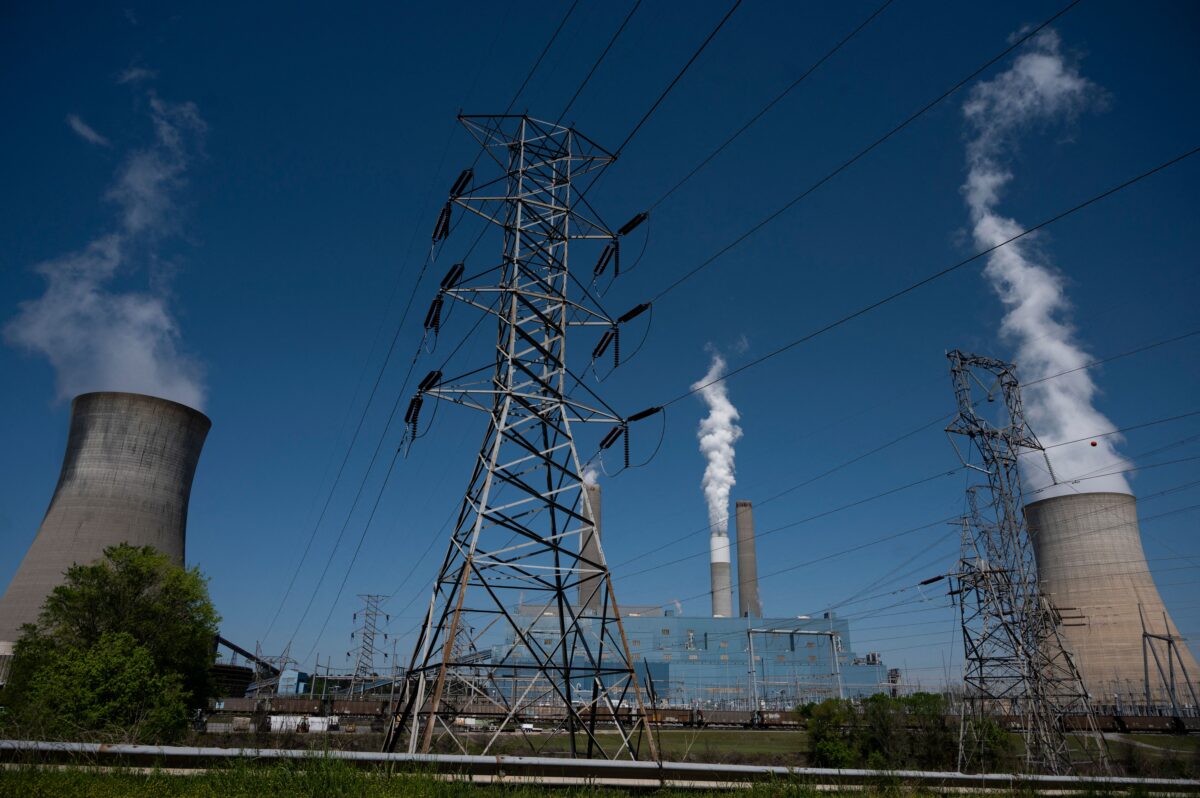
Rep. Kelly Armstrong (R-N.D.) on May 15 spoke during a virtual forum at the Hudson Institute on energy policy, explaining how the United States is “weakening ourselves” with climate politics that hurts U.S. energy capacity and threatens national security.
Specifically, Armstrong said that environmentalist policies, along with the already long waiting times to get government approvals, make it riskier to even begin construction on new fossil fuel infrastructure, in turn making it more difficult for manufacturers to collect investor funding. Armstrong dismissed goals of “transitioning” away from traditional energy sources as unrealistic, and said that environmentalists’ goal of “outsourcing their guilt” over carbon emissions to other countries only hurts the environment and U.S. national security.
Under current federal law, firms can be forced to wait a decade or more before gaining approval from the Environmental Protection Agency (EPA) and other federal agencies to undertake new energy projects.


During the last Congress, Sen. Joe Manchin (D-W.Va.) attempted to lead an effort to overhaul fossil fuel permitting over concerted opposition from the left wing of his party. Now, through their H.R. 1 energy bill, Republicans are seeking similar reforms.
“We have to have permitting reform, regardless of what kind of infrastructure you want to put in the ground,” Armstrong said, referring to infrastructure like oil refineries and pipelines.
Armstrong’s home state of North Dakota is a major source of energy production, and he contrasted federal policy with North Dakota policy throughout the panel.
“We used to be really good at getting this stuff into the ground and being able to do it,” said Armstrong. “We’re not anymore, and it’s through litigation, bureaucratic morass, a thousand different reasons.”
Armstrong said this was partly because Republicans were “late to the game” on the climate fight, not challenging left-wing claims until the notion of manmade global warming had become mainstream.
Armstrong explained that the prevalence of environmentalist politics in discourse today means it’s riskier for firms to attempt new energy projects, thus disincentivizing energy production.
Often, these projects can take as much as a decade with federal regulation and red tape. As many presidential candidates mount campaigns opposing the expansion of energy production, raising capital is difficult, Armstrong said.
“How are you gonna raise capital for these kind of necessary infrastructure projects if you know you’re gonna have two or possibly three presidential elections in the meantime?” Armstrong said, adding his opinion that environmentalists intentionally used politics to “starve off the investment forum” by increasing the risk of such projects.
Since taking office, President Joe Biden announced a goal of reducing U.S. emissions by around 50 percent by 2030.


In the meantime, he has sought to carry out a goal of “transitioning” the United States away from traditional energy sources toward renewable sources like solar and wind power. To do this, Biden placed a moratorium on new federal leases to oil and natural gas companies and halted construction of the Keystone XL pipeline—a pipeline that’s been an environmentalist target since former President Barack Obama was in office.
Armstrong said the behavior of oil and natural gas companies since Biden took office reveals the effects his policies are having: even as oil costs have skyrocketed, producers have not upped their production of oil.
“First time in my lifetime, where you see a massive spike in prices doesn’t correlate to a massive increase in drilling. First time ever,” Armstrong emphasized. “There’s only one reason for it: they don’t trust this administration.”
Armstrong noted that while drilling for oil is important, it’s only the first step in the life of energy—new energy sources also need to be discovered, refined, and moved across the country.
“We have to send signals that we are interested in doing this,” Armstrong said. But so far, the Biden administration has not expressed such an interest.
The Republicans’ energy bill, which Armstrong noted would not cut any environmental regulations but only speed up the process, was focused on this issue. Armstrong described a key GOP concern in crafting the bill: “How can we allow the federal government to allow private enterprise to raise capital and get these media infrastructure permits into the ground faster?”
Armstrong said that much of U.S. climate policy today involves “outsourcing our guilt” about climate emissions but noted that this policy is a danger to Western national security and the environment.
American oil is easily some of the cleanest in the world, undergoing stringent environmental requirements. By comparison, other major oil producers like Saudi Arabia, Venezuela, and Russia have far dirtier oil.
Nevertheless, Armstrong noted, “The U.S. is the only country in the world, essentially, that’s lowered its climate emissions.”
Speaking on the competing values of protecting the environment and ensuring American energy security, Armstrong said: “You can do both things at once. We just have to get [a] policy based on the reality of what it’s gonna take to drive the world and lead the U.S. economy over the next 50 years and not have [an] ideological environmental policy that’s really based on outsourcing our guilt.”
In an effort to lower gas prices for consumers, Biden withdrew millions of barrels of oil from the Strategic Petroleum Reserve (SPR), a reserve of oil designed to be used in case of wars, natural disasters, or other national emergencies. Even as he’s drained the SPR, Biden has made no move to incentivize further oil production so the reserve can be replenished.
In addition to worse damage to the environment, Armstrong noted that there is also a litany of national security concerns for the United States and its allies in pursuing these policies.
Over the past several months, Europe has buckled under an unprecedented energy crisis due to its reliance on Russian oil.
Since the Russian invasion of Ukraine, Armstrong said, “They have started to recognize that relying on one particular country—particularly a country that isn’t necessarily in the same ideological place as the rest of Europe for your energy—is horribly, horribly problematic.”
During his past efforts to secure permitting reform, Manchin also noted that the United States could produce more than enough energy to protect its European allies if not for the Biden administration’s climate agenda.
Armstrong also cited communist China’s ongoing “charm offensive” in oil-rich Central and South American states like Venezuela, as well as the American adversary’s efforts in Africa.


“We’ve ignored our own backyard, whether it’s with energy or mutual assistance,” Armstrong said.
“I don’t know why we would take ourselves out of participation in that process.
“Again, we know how to do it cleaner; we know how to do it better than anyone else. But more importantly, we are ceding real strategic places in the world and the developing nations for climate ideology that allows somebody to come in and take over where we were; we just failed to act. And that’s … neither responsible nor a very smart response for our foreign policy, our domestic energy, and overall national security interests.”
Armstrong said that the overarching goal of environmentalist energy policy—a “transition” away from traditional sources—simply wasn’t going to happen.
“When they talk about an energy transition, we’ve never transitioned from a way of primary energy in this country in the world and the history of the world,” Armstrong said. “We burn as much wood as we did 2,000 years ago.


“When they talk about transitioning to end this stuff, it’s just simply not going to happen. It never has,” he emphasized.
Instead, he said the United States should focus on forming a “robust portfolio” of energy sources, including a collection of wind, solar, and other renewables with traditional sources like oil, coal, and natural gas.
And even these kinds of power need energy infrastructure to transmit over a long range, he noted.
“You need to be able to move weather-dependent power further if you want to have reliability and resiliency on the grid, but you also have to be able to have gas-fired power plants, nuclear power plants, coal-fired power plants that are there when the wind isn’t blowing and the sun isn’t shining,” he said.
During the panel, Armstrong expressed some confidence that Republicans and Democrats could reach an agreement on permitting reform.
However, the future of such efforts remains up in the air, as H.R. 1 would still need to pass through the Democrat-held Senate. It will ultimately be up to Senate Majority Leader Chuck Schumer (D-N.Y.) to allow a vote on the bill in the upper chamber.
It’s unclear whether such a bill would have the support of moderates in the Democrat caucus like Manchin, Sen. Kyrsten Sinema (I-Ariz.), and Sen. Jon Tester (D-Mont.), each of whom are facing reelection next year.




Discount Applied Successfully!
Your savings have been added to the cart.